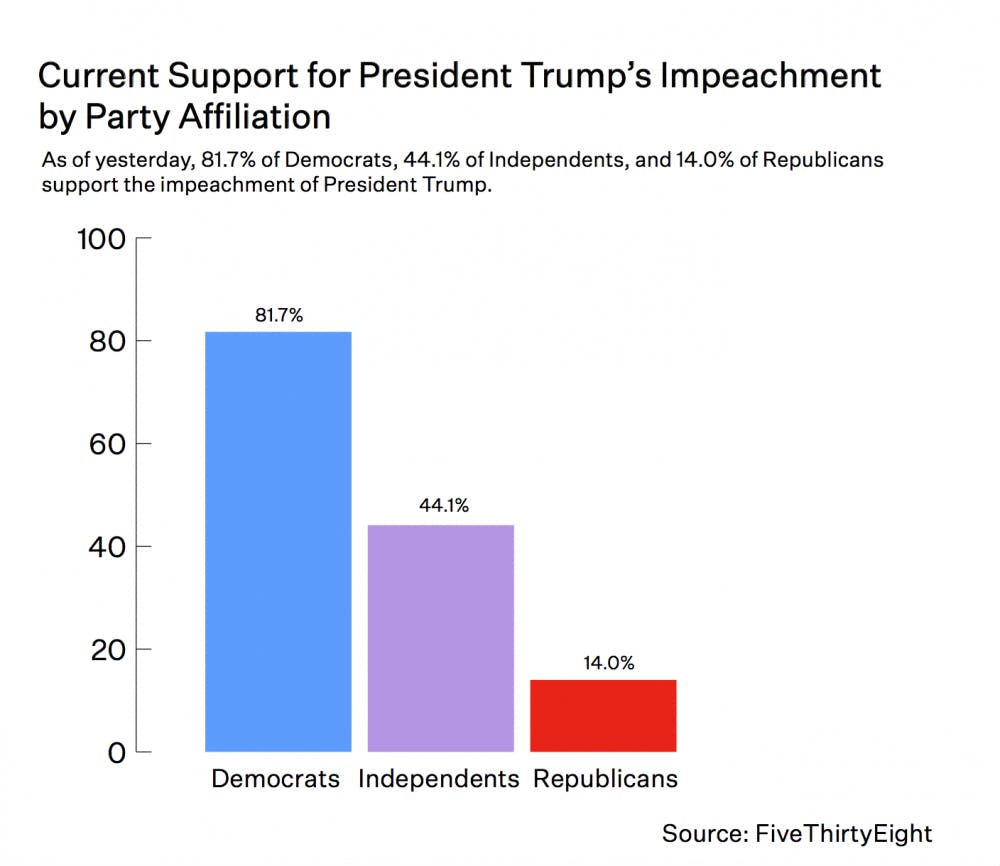As debate over the impeachment inquiry against President Trump dominates discourse nationwide, some students on campus are weighing the implications of the investigation.
The Herald conducted interviews with 10 undergraduate students over the last week and found that many support holding Trump accountable but are concerned over the inquiry’s potential effect on the 2020 presidential election.
House Speaker Nancy Pelosi (D-Calif.) launched an official impeachment inquiry Sept. 24, which marked the fourth time in history that Congress has taken this step against a president. Pressure for an inquiry mounted after a whistleblower report revealed an alleged secret call between Trump and Ukrainian President Volodymyr Zelensky, in which Trump pressured Zelensky to investigate political rival and Democratic presidential candidate Joe Biden.
The investigation has sparked mixed reactions from students with varying political leanings. Most students interviewed by The Herald cited the whistleblower report as the reason they support an investigation of the president.
In The Herald’s semesterly poll of the student body — conducted Oct. 2 and 3 — 15.9 percent of students answered that “current government leadership” is the most important issue facing the country today. Only “environmental/climate change” drew more responses, with 37.8 percent of the students polled.
Andrew Castillo ’20, who worked on Sen. Kamala Harris’s (D-Calif.) campaign this summer, was opposed to an impeachment inquiry as recently as a few months ago. He was concerned about the potential political ramifications for Democrats if the public reacted poorly to an inquiry, but his opinion changed following the whistleblower report’s revelations. “Impeachment now is the road that we have to go down,” he said, adding that the impeachment inquiry could be a way to “remind the American public that these are the things that he’s done, these are the promises that he’s broken, and he needs to be accountable for that.”
Zoë Mermelstien ’21, president of Brown College Democrats, similarly saw the report as a turning point. “This latest scandal with Ukraine shows not only substantiated evidence that he has broken his oath of office, but that he is undermining the very institution of voting,” she said. “It would be irresponsible not to hold him accountable for that.”
But not all students feel the Ukraine scandal is worthy of an impeachment inquiry. Julian Haag ’20, president of Brown College Republicans, said the inquiry feels like a political attack, and the constant investigations of Trump have limited the president’s ability to accomplish anything in office. “I want people to understand that, for the right, this is not a bipartisan Richard-Nixon-type thing,” he said. “As a culture, as a nation, I don’t think we’re any better from this.”
While Ukraine was the last straw for some students, others interviewed by The Herald feel that an inquiry was long overdue.
“I really think that the president, from the beginning of the campaign up until now, has shown a pattern of reckless and self-serving behavior,” said Michael LeClerc ’20.5, speakers and events chair of the Brown College Democrats, adding that he was surprised it took Congress this long to take action.
“There are a lot of other impeachable offenses that the Trump administration did,” added Samy Amkieh ’21. “I think what Speaker Pelosi did was limit the investigation to solely Ukraine, and I think that that’s a mistake.”
While many students interviewed by The Herald expressed approval of a congressional move to hold Trump accountable for his actions, some were concerned that the inquiry would only fuel the president’s popularity.
“The impeachment hearings might not be doing the Democrats as big of a favor as they might expect or hope,” said Michael Yuan Tian ’20. He added that he worried this move would spur increased campaign donations from Trump’s base.
Margherita Micaletti-Hinojal ’23 said that proceeding with the impeachment process “kind of plays into what the conservatives usually attack the Democrats (for), which is that they try and villianize Trump and then proceed to get nothing done in the House.”
“If the impeachment is conducted in a way where swing voters and independent voters feel that it’s mainly a partisan thing, and it’s not being held in an impartial manner, I think then it might backfire,” said Viknesh Kasthuri ’21.
The impeachment inquiry is moving forward in the House of Representatives, with committees issuing subpoenas and hearing testimonies. But even if Trump is impeached by the House, it is unlikely that the Senate, controlled by Republicans, would vote to remove the president from office.
Richard Arenberg, visiting professor of the practice of political science who worked on Capitol Hill for 34 years, sees a possibility that the Senate vote could be more bipartisan than expected. He emphasized the rapid shift in public opinion on the impeachment inquiry. According to polling site FiveThirtyEight, 48.9 percent of Americans support impeachment and just 43 percent disapprove. The data shows that support spiked following the whistleblower report.
“If that pattern were to continue, that’s one factor that would put a lot of pressure on members of the Senate when the trial took place,” Arenberg said.
— With additional reporting by Morgan McCordick





